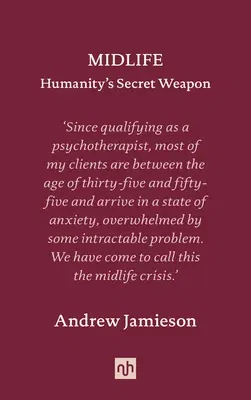A radical new take on one of humanity's most misunderstood periods of
transition: the midlife crisis.
Only two species of mammal have a post-reproductive life that lasts
longer than their reproductive life: killer whales, whose elders are
able to sniff out food supplies over vast oceanic distances to keep
their pods fed, and Homo sapiens. While the evolutionary purpose of the
killer whale's extensive life seems clear, what is the point of ours?
This was a question that intrigued the psychoanalyst Carl Jung, who
observed that if a culture is to maintain its deepest, profoundest roots
while moving forward to embrace the challenges of historical and
technological change, it needs to find an equilibrium between the
energy, vigor, and creativity of those in the ego-driven first half of
life and the experience, dignity, and wisdom of those in the second. But
to make it to that second half of life, we need to traverse the dreaded
middle years, when so many of us find ourselves discontented with our
jobs, unhappy in our relationships, and lamenting our fetishized youths.
In this highly readable and groundbreaking new book, the psychoanalyst
Andrew Jamieson examines the Jungian concept of the midlife crisis to
show how it is an essential evolutionary and social rite of passage that
we all must proceed through--a set of challenges that we either take
advantage of or ignore, depending on whether our complex or neurosis
blocks this developmental impulse.
Drawing on history, psychology, science, and literature, Jamieson shows
just how ubiquitous, and crucial, the "midlife crisis" is, and the
devastating consequences for society at large if we continue to regard
it as something we can, and should, avoid.

